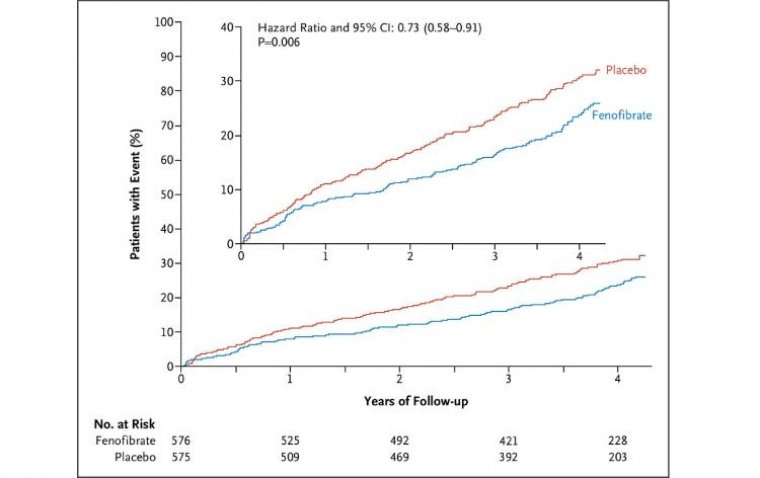
Fenofibrate Reduces Diabetic Retinopathy Risk by 27%, LENS Trial Finds
In a groundbreaking development for diabetes management, the LENS trial has revealed that fenofibrate, a medication typically used to lower cholesterol, can significantly reduce the risk of diabetic retinopathy progression by 27%.
These findings were presented at the American Diabetes Association Scientific Sessions and detailed in the study titled "Effect of Fenofibrate on Progression of Diabetic Retinopathy," published in NEJM Evidence.
Diabetic retinopathy, a condition where diabetes damages the blood vessels in the retina, ranks among the top causes of vision loss worldwide and has seen an increasing prevalence in recent decades.
Fenofibrate Emerges as a Promising Treatment
Fenofibrate, a drug with a history of more than 30 years in cholesterol management, emerged as a potential treatment for diabetic retinopathy following earlier indications from sub-studies focused on heart disease treatments.
The LENS (Lowering Events in Non-proliferative retinopathy in Scotland) trial, overseen by Oxford Population Health, aimed to substantiate these initial findings by comparing fenofibrate against a placebo in 1,151 adults with type 1 or type 2 diabetes across Scotland. Participants, all of whom exhibited early to moderate diabetic retinopathy at the trial's outset, were enrolled as part of Scotland's national diabetic eye screening program.
LENS Trial Results: Fenofibrate's Impact on Diabetic Eye Disease
Over a four-year period, the study demonstrated that individuals treated with fenofibrate experienced a 27% lower likelihood of requiring specialist care or treatment for diabetic retinopathy or maculopathy—a progressive eye disease potentially leading to vision loss—compared to those receiving placebo.
Additionally, fenofibrate treatment correlated with reduced risks of developing macular edema (eye swelling) and needing retinopathy treatment, benefits observed consistently across participants with type 1 and type 2 diabetes, and among those with normal and impaired kidney function.
Dr. David Preiss, Associate Professor at Oxford Population Health and lead author of the study, emphasized the significance of these findings: "Diabetic retinopathy remains a leading cause of visual impairment. While maintaining optimal blood glucose levels is crucial, achieving this is often challenging. Effective and accessible treatments are urgently needed, and fenofibrate appears promising in slowing the progression of diabetic eye disease."
Participant Insights: Impact of LENS Trial
Reflecting on their participation in the LENS trial, Melville Henry from Leven remarked, "Taking part was straightforward; I simply followed instructions and attended clinic appointments. The study offered me regular support, and I felt contributing to research was meaningful."
Linda Gillespie of Kirkcaldy, another trial participant, shared, "Attending for regular diabetic eye screenings made joining the trial effortless. Participation was a way for me to contribute to future treatments, potentially benefiting others."
Dr. Lucy Chambers, Head of Research Communications at Diabetes UK, echoed the trial's importance: "Eye complications are a serious concern for individuals with diabetes. Early intervention can halt initial damage from progressing into severe vision impairment. These positive outcomes from the LENS trial bring hope for advancing treatments to mitigate diabetic eye damage, potentially benefitting many across the UK."
The results of the LENS trial signify a significant stride towards effective management of diabetic retinopathy, underscoring the need for continued research and accessible treatments in combating this debilitating complication of diabetes.
Reference
David Preiss et al, Effect of Fenofibrate on Progression of Diabetic Retinopathy, NEJM Evidence (2024). DOI: 10.1056/EVIDoa2400179
(1).jpg)










